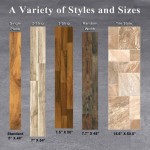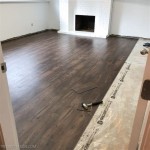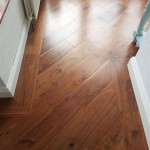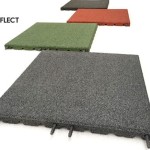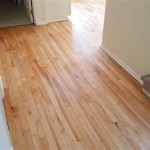The Pros and Cons of Engineered Flooring vs. Laminate: A Comprehensive Guide
When it comes to flooring options, engineered flooring and laminate are two of the most popular choices. Both options offer their own unique advantages and disadvantages, so it's important to weigh the pros and cons before making a decision.
Engineered Flooring
Engineered flooring is made from real wood, but it is constructed in a way that makes it more stable and durable than solid hardwood flooring. The top layer of engineered flooring is a thin layer of real wood, which gives it the same look and feel as solid hardwood. The core of engineered flooring is made from a variety of materials, such as plywood, MDF, or HDF. This core gives engineered flooring its stability and makes it less likely to warp, buckle, or expand than solid hardwood flooring.
Pros of Engineered Flooring:
- More stable than solid hardwood flooring: Engineered flooring is less likely to warp, buckle, or expand than solid hardwood flooring, making it a good choice for areas that experience changes in temperature or humidity.
- More durable than laminate flooring: Engineered flooring is more durable than laminate flooring, and it can withstand more wear and tear.
- Can be refinished multiple times: Engineered flooring can be refinished multiple times, which means that it can last for many years.
Cons of Engineered Flooring:
- More expensive than laminate flooring: Engineered flooring is more expensive than laminate flooring.
- Not as easy to install as laminate flooring: Engineered flooring is not as easy to install as laminate flooring, and it requires professional installation.
- Not as waterproof as laminate flooring: Engineered flooring is not as waterproof as laminate flooring, and it can be damaged by water.
Laminate Flooring
Laminate flooring is a type of flooring that is made from a composite material. The top layer of laminate flooring is a photographic image of wood, stone, or tile. The core of laminate flooring is made from a high-density fiberboard (HDF). The bottom layer of laminate flooring is a backing layer that helps to protect the flooring from moisture.
Pros of Laminate Flooring:
- More affordable than engineered flooring: Laminate flooring is more affordable than engineered flooring, making it a good option for budget-conscious buyers.
- Easy to install: Laminate flooring is easy to install, and it can be installed as a floating floor, which means that it does not need to be nailed or glued down.
- Waterproof: Laminate flooring is waterproof, and it can be installed in areas that are prone to moisture.
Cons of Laminate Flooring:
- Less durable than engineered flooring: Laminate flooring is less durable than engineered flooring, and it can be scratched or damaged by heavy traffic.
- Cannot be refinished: Laminate flooring cannot be refinished, so it will need to be replaced when it becomes damaged.
- Can be noisy to walk on: Laminate flooring can be noisy to walk on, especially if it is not installed with a soundproofing underlayment.
Which Type of Flooring is Right for You?
The best type of flooring for you will depend on your individual needs and preferences. If you are looking for a durable and long-lasting flooring option, engineered flooring is a good choice. If you are looking for an affordable and easy-to-install flooring option, laminate flooring is a good choice.

Engineered Hardwood Vs Laminate

Laminate Flooring Vs Engineered Hardwood Pros And Cons

Engineered Flooring Vs Laminate Everything You Need To Know Forbes Home

Engineered Hardwood Flooring Pros And Cons Floors Blvd

Engineered Hardwood Vs Laminate

Hardwood Vs Engineered Wood Flooring Which Is Best For You Forbes Home

Laminate Vs Hardwood Flooring Major Differences Forbes Home

Laminate Flooring Pros And Cons Comparison

Vinyl Vs Laminate Flooring Pros Cons And Differences 2024 Forbes Home

Engineered Wood Flooring Vs Solid Hardwood
See Also
